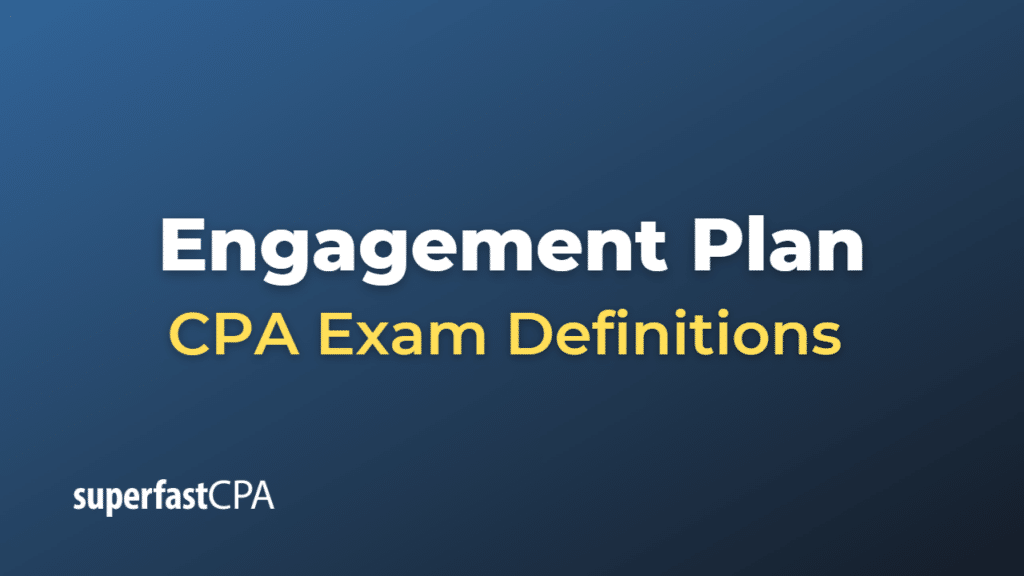Engagement Plan
An engagement plan, also referred to as an audit plan, is a comprehensive document prepared by auditors at the beginning of a financial statement audit. The engagement plan outlines the overall audit strategy and provides a roadmap for the audit process, detailing the scope, objectives, approach, and timeline of the audit. The purpose of an engagement plan is to ensure the audit is conducted efficiently, effectively, and in accordance with applicable auditing standards.
Key components of an engagement plan typically include:
- Audit objectives: The engagement plan should clearly state the objectives of the audit, such as providing an independent opinion on whether the client’s financial statements are presented fairly, in all material respects, in accordance with the applicable financial reporting framework.
- Scope of the audit: The engagement plan should define the scope of the audit, including the financial statements and periods to be audited, and the applicable financial reporting framework.
- Risk assessment: The engagement plan should include a preliminary assessment of the risks of material misstatement, identifying significant areas that require special attention or focus during the audit. This assessment is based on the auditor’s understanding of the client’s industry, business operations, and internal control environment.
- Audit approach: The engagement plan should outline the overall audit approach, including the mix of substantive procedures and tests of controls, and the use of analytical procedures to obtain sufficient appropriate audit evidence.
- Materiality: The engagement plan should establish materiality levels for the audit, considering both quantitative and qualitative factors that could affect the users’ decision-making based on the financial statements.
- Audit team and resources: The engagement plan should identify the key members of the audit team, their roles and responsibilities, and any necessary resources, such as specialized expertise or technology tools.
- Audit timeline and milestones: The engagement plan should include a timeline for the audit, outlining key milestones, deadlines, and target dates for completing specific audit procedures, as well as the date for issuing the audit report.
- Coordination with client and other auditors: The engagement plan should address any coordination and communication requirements with the client’s management, those charged with governance (e.g., audit committee), and other auditors or specialists involved in the audit.
- Quality control and review: The engagement plan should outline the quality control procedures to be applied during the audit, such as supervision, review, and consultation processes.
The engagement plan is a critical component of the audit process. It guides the audit team’s work, ensures efficient allocation of resources, and helps to maintain focus on the key audit areas. The engagement plan is subject to ongoing reassessment and modification as the audit progresses and new information or issues emerge.













